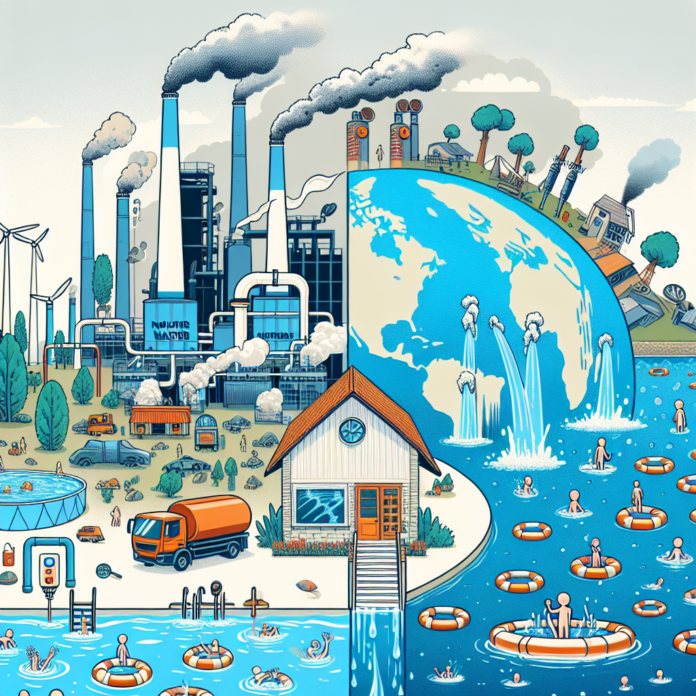World Bank Highlights Increased Water Use Due to Climate Change
Climate Change to Increase Non-Agricultural Water Usage: World Bank Insights
The World Bank has issued a report highlighting the significant impact of climate change on water resources, particularly emphasizing an anticipated rise in non-agricultural water consumption. As climate patterns shift due to global warming, the demand for water in sectors beyond agriculture—such as industry, urban development, and energy generation—is expected to escalate.
One of the primary drivers behind this trend is the growing population and urbanization, which are leading to increased water needs in cities. As more people move to urban areas, the pressure on water supply systems intensifies, requiring innovative solutions to manage and distribute water efficiently. Additionally, industrial processes are becoming more water-intensive, thereby contributing to the overall increase in non-agricultural water use.
The report also underscores the necessity of adapting water management strategies to address these emerging challenges. Policymakers are urged to invest in sustainable water infrastructure, promote water conservation practices, and implement regulatory frameworks that facilitate equitable distribution of water resources. This strategic approach is essential not only for mitigating the effects of climate change but also for ensuring that water remains accessible for future generations.
Furthermore, the World Bank emphasizes the importance of integrated water resource management (IWRM) as a means to balance the competing demands for water from various sectors. By adopting IWRM practices, countries can better allocate water resources, improve resilience to climate impacts, and enhance the sustainability of both agricultural and non-agricultural water use.
In conclusion, as climate change continues to reshape our environment, it is crucial for governments, businesses, and communities to collaborate on water management solutions that address the increasing demand for non-agricultural water use. This collective effort will be vital in ensuring a sustainable and resilient water future amidst the ongoing challenges posed by climate change.


